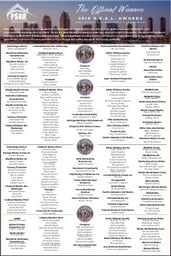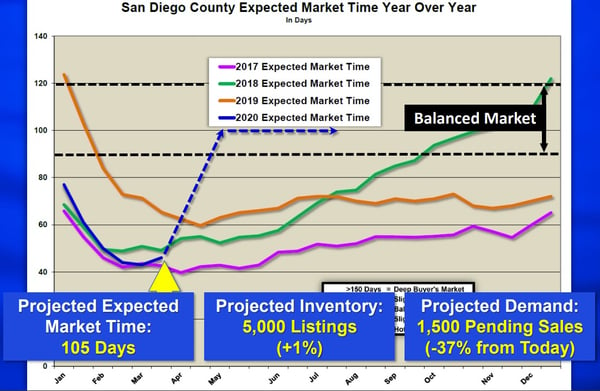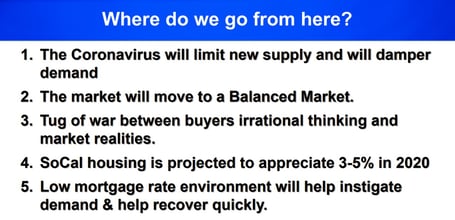
Our Virtual Town Halls offer a benefit to our members as we “live alone together”
The COVID-19 coronavirus pandemic has changed our lives in ways unimaginable over the past few weeks. It’s on every channel, every news website and part of every conversation. Shelter in place orders and self-quarantines are keeping millions of people around the world hunkered down in their homes. In our lifetime, we’ve never had a crisis of this magnitude.
PSAR is addressing this reality proactively, and one of the steps taken is to launch a twice-a-week Virtual Town Hall meeting to deliver Covid-19 news updates, valuable information and insights related to our industry. These meetings start at 12:30 p.m. every Tuesday and Thursday, utilizing the Zoom online video conferencing platform. All PSAR members are invited to join these live meetings. Zoom membership is not required to participate. You can download the Zoom link and login number for future PSAR Virtual Town Hall meetings on the PSAR website (click button).

Rich D’Ascoli, PSAR’s Chief Executive Officer, is the host of the meeting. Guests are invited to provide industry updates and information. Members are invited to share their experiences and accumulated knowledge of conducting business in a very challenging landscape. The virtual aspect of these meetings in itself is instructional to members who want to learn more about how to use technology to enhance their own business practices.
“We’re concerned about how COVID-19 will impact our members personally, including the health of their businesses,” said D’Ascoli. “We know the coronavirus pandemic is leaving people feeling fragmented and disconnected. Nobody wants to spend their days in isolation. But, social distancing does not mean social isolation. We all still want to connect with each other and we’re learning how to do that in different ways.
“So, our Virtual Town Halls offer a benefit to our members as we 'live alone together'". We at PSAR and all of our association members will be here to keep you company. All of us are always at our best when we respond to challenges as a PSAR community. Right now, helping people get the right information to stay healthy and keep their businesses moving is more important than ever. We all have a role in this endeavor.”
On Thursday, March 26, nearly 200 PSAR members participated in the latest Virtual Town Hall meeting, which included appearances by Ernie Dronenburg, San Diego County Assessor-Recorder Clerk, Joel Singer, CEO of the California Association of REALTORS® (C.A.R.) and Kristian Hoysradt, Political Representative with the National Association of REALTORS® (NAR).
They offered various perspectives on the impact of the virus.
The C.A.R. and NAR representatives announced the launch of microsites on their websites that will deliver COVID-19 updates. The C.A.R. site is at www.CAR.realtor/coronavirus. The NAR site is at www.NAR.realtor/coronavirus.
PSAR has a special COVID-19 landing page at https://info.psar.org/covid19. There is also a page with financial resources for REALTORS® and their clients https://info.psar.org/financialhelp. PSAR’s services during this crisis can be found here: https://info.psar.org/services. Following are some of the notable points that were brought out in the Thursday Town Hall meeting.
Dronenburg said his office is fully operational and all exemption programs are continuing without interruption. He’s also planning to send a letter to Gov. Newsom requesting that REALTORS® and real estate are deemed as “essential businesses.”
Singer discussed the recent “safer at home” guidelines for open houses. C.A.R. is recommending a cessation of all face-to-face marketing or sales activities, including showings, listing appointments, open houses and property inspections. Clients and other consumers are also subject to these orders and should not be visiting properties or conducting other business in person.
However, property management and repair work, which generally involves maintaining sanitary and safety conditions, is permissible. Additionally, many other aspects of the real estate industry can continue to occur without in-person contact, including documentation and signing, and in many circumstances, closings.
Singer referenced the availability of a “Coronavirus Addendum” to the standard real estate buy-sell transaction contract. The addendum allows a party in a real estate transaction to terminate or suspend the transaction for up to 30 days in the event of “unforeseen circumstances, which the parties could not have anticipated or are beyond their control.” C.A.R. said travel restrictions, government required isolations and closures of business offices due to the COVID-19 pandemic could inhibit a buyer or seller from signing documents in person, preventing a close of escrow.
Governor. Newsom’s announcement of a 90-day mortgage grace period was also mentioned by Singer. More than 200 banks, including Wells Fargo, Citibank, JPMorgan Chase and U.S. Bank, have agreed to a moratorium on mortgage payments for homeowners. The Federal Deposit Insurance Corp. has asked banks to take “reasonable and prudent steps” to assist consumers affected by the pandemic. Likewise, the Federal Housing Finance Agency, the Federal Housing Administration and Fannie Mae said hardship forbearance should be an option for distressed borrowers.
Hoysradt, speaking from the NAR offices in Washington, D.C., talked about the historic $2.2 trillion emergency package that was nearing final approval on Friday. He said the rescue package, intended to help revive the American economy and prevent it from collapsing, will help millions of small businesses facing a coronavirus cash crush, and individual Americans caught in a COVID-19 lockdown who may be unable to pay bills.
Among the bill’s provisions, individuals who earn $75,000 or less in adjusted gross income would get direct payments of $1,200 each, while those making more than $75,000 would see smaller direct payments. Those making $99,000 or more would be excluded entirely from the direct payments. The bill also provides for up to $350 billion in federally guaranteed loans for small businesses and $500 billion in loans for larger businesses affected by the pandemic and subsequent closures.
Emergency funds will also be funneled into unemployment benefits, increasing payouts to nearly 100 percent of lost wages. Benefits payout timeframes will be extended an additional four months. And gig workers and independent contractors for the first time will be eligible
“As we all continue to navigate our new normal together, PSAR is committed to ensuring our members have what they need to be productive and successful,” said D’Ascoli. “We recognize that our members rely on us, perhaps more than ever, to help them stay productive. We take that responsibility seriously. I can assure our members that we are here to help and serve them.
“In that spirit, our Service Centers are remaining open, weekdays from 9 to 5 p.m, to receive phone calls, personal emails and those from our help page . All hands are “on deck”. Some staff members are available to provide in-person services at our Service Centers by appointment. For those in-person encounters, we will of course maintain a six-foot, social distance requirement in support of the CDC recommendations. Everyone stay healthy and good luck to you!”







 Thomas said don’t get discouraged by news media reports of Covid-19- caused low economic numbers. This temporary downturn differs from previous downturns in U.S. macroeconomic history
Thomas said don’t get discouraged by news media reports of Covid-19- caused low economic numbers. This temporary downturn differs from previous downturns in U.S. macroeconomic history






.jpg?width=635&name=capitol-22546_640%20(2).jpg)

